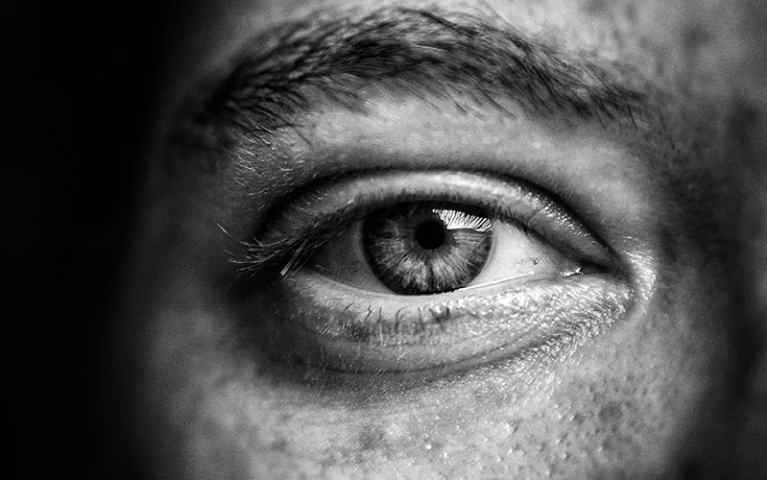Just as our brain and body heal during a good night's sleep, so do our eyes. As we age, our eyes age, too. Do any of the following eye symptoms sound familiar?
Not getting enough quality shut-eye can impact not only appearances – waking up with unsightly dark under-eye circles – but also our eyesight.
If you're fatigued, your vision and memory may be impaired, says Dr. Robert Abel, Jr., an ophthalmologist and author of "The Eye Care Revolution." A lack of sleep can worsen other eye issues, while obstructive sleep apnea, a largely undiagnosed sleep disorder that causes frequent, significant breathing pauses during sleep, may contribute to eye issues.
Dry Eyes Made Worse
It's estimated some five million Americans age 50 and older have dry eye, according to the National Eye Institute. While lack of sleep doesn't cause dry eye, it doesn't help those who have the condition. Resting your eyes helps soothe the symptoms of dry eye.
And beware of sleeping pills, both prescription and herbal. Some have side effects that may make it difficult for your body to secrete moisture, causing dryness in the mucous membranes of your mouth and eyes, according to the American Academy of Opthamology.
The Role of Obstructive Sleep Apnea
“Obstructive sleep apnea (OSA) has many systemic ocular findings [and] causes many systemic and ocular diseases," says Dr. Abel.
Five ocular problems may occur with OSA, according to the American Academy of Ophthalmologists.
Floppy eyelid syndrome (FES): Ophthalmologists can help detect OSA through routine eye exams, Dr. Abel says. One of the main indications is floppy eyelid syndrome, a condition where eyelids are easily pliant and rubber-like, staying puckered when pulled. Symptoms of FES include eye irritation, dryness, redness, discharge, light sensitivity and eyelid swelling. Some 85 percent of those with FES also have OSA, according to a report in The Review of Optometry.
“It's a critical sign for sleep disturbance," says Dr. Abel. The fluctuations in oxygen and carbon dioxide levels caused by OSA's disrupted breathing change the enzymes that are in the eyelid's collagen tissue, making it more floppy and less rigid, he explains.
Glaucoma: Fluctuations in blood pressure caused by OSA can worsen or contribute to glaucoma, a progressive disease usually caused by excess fluid and related pressure in the front of the eye that damages the optic nerve. Glaucoma damage is irreversible, and, if left untreated, can cause permanent blindness.
“For years and years and years researchers did not understand why people got this kind of disease and did not ascribe it to obstructive sleep apnea, “says Dr. Abel. “So, we now know that low blood pressure at night can be harmful to the retina and the optic nerve."
More than three million Americans are estimated to have glaucoma, but because the disease is symptom-free at first, only half know they have the disease. The American Optometric Association recommends adults without any eye health issues age 18 to 60 get eye exams every two years, and yearly for those over 60.
“Glaucoma can be due to either high pressure in the eye or low blood pressure at night," explains Dr. Abel. “People can take high blood pressure medicine, so when they lie down at night that makes their blood pressure really drop, so people can lose vision at night. Glaucoma is called the thief at night."
Non-arteritic anterior ischemic optic neuropathy: NAION is a painless condition where blood flow loss in the eye's optic nerve causes vision loss in one eye, with 75 percent of cases occurring during sleep. Some 71 percent of patients with NAION have OSA. Apnea sufferers who don't follow treatment prescriptions that call for a CPAP (continuous positive airway pressure) machine have an increased risk of losing vision in their other eye.
Papilledema: In papilledema, increased pressure around the brain causes the optic nerve to swell, says Dr. Abel. Symptoms include headache, vomiting, nausea and fading and blurry vision.
“All of these things have to do with the fact that the eye is a closed space and the brain is a closed space. So, when you have swelling, there's very little place it can go," says Dr. Abel.
Retinal vein occlusion: Changes in blood pressure caused by OSA can cause a stroke in the optic nerves – causing partial or full blindness, says Dr. Abel. “You can have either retinal artery or vein occlusion. It took until about six years ago before the first published article indicated 40% of retinal vein occlusions were caused by sleep apnea."
Eye Health Affects Overall Health
Sleep remains a critical ingredient to eye health as well as overall health.
A good night's sleep also nourishes your eyesight. “Everything you eat goes through your liver before it goes elsewhere. And, at night, when your eyes are quiet, it gets transferred to the body's organs like the eyeball. All that nutrition is in the liver, and you need that night sleep, you need that dark, restful sleep to nourish your vision," says Dr. Abel.
Like diet and exercise, quality sleep is essential for optimal wellbeing and performance. Because everyone's sleep needs are different, Sleep Number® smart beds sense your movements and automatically adjust firmness, comfort and support to keep you both sleeping comfortably. Find your Sleep Number® setting for your best possible night's sleep, and if you own a Sleep Number® bed, log in to your Sleep Number® Rewards account to see your exclusive offers, refer friends and more.
